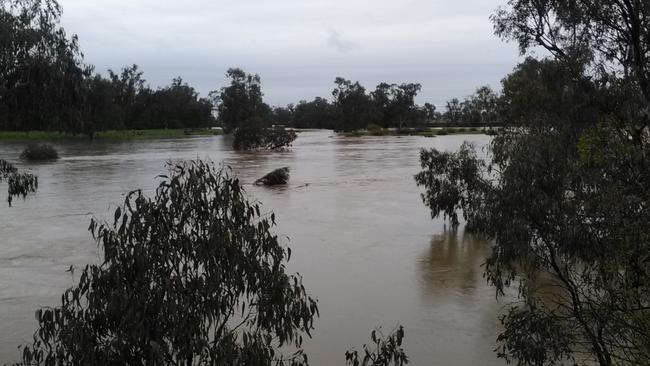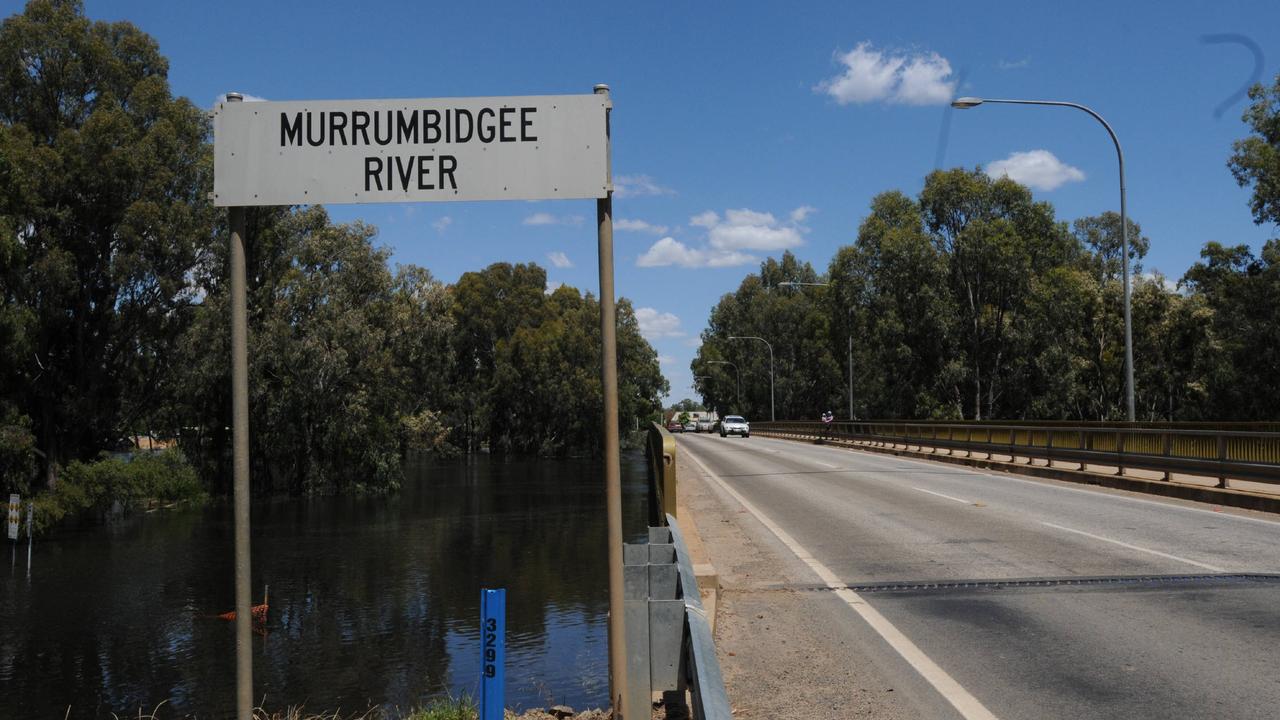Floodplain harvesting NSW: Battle on legality between Riverina irrigators
Southern Riverina irrigators are itching to take legal action against floodplain harvesting across the northern Murray Darling Basin, which they say is illegal.

NSW irrigators are slugging it out in a battle over floodplain harvesting, with those in the Southern Riverina declaring the practice illegal, while those in the north dismiss the claim.
But both sides recognise the failure to license floodplain harvesting across the northern Murray Darling Basin should have been resolved by the NSW Government a decade ago.
As it stands the Northern Basin’s $2 billion irrigated agricultural sector’s ability to harvest floodplains without licenses is at risk of legal challenge, with those in the south already briefing lawyers and itching for a fight.
SRI chairman Chris Brooks said the NSW Government had a responsibility to “spell out” to northern irrigators that they could not touch floodplain water.
“If you allow them to take it, I believe we can claim damages for not allowing it to flow down from Bourke. It’s illegal,” he said.
Even sources within the NSW Government recognise there’s a problem, with one admitting: “if a flood happened tomorrow, the question is: ‘would they (floodplain harvesters) be able to take water legally or not?’”.
It’s not a new issue, given floodplain harvesting has never been licenced.
“The fact is nobody has said ‘boo’ up until now,” the government source said.
But it matter for irrigators like Mr Brooks who said everyone in the southern basin had become increasingly concerned that floodplain harvesting was curbing the Darling River’s contribution to the Murray’s flow to South Australia, leaving NSW and Victorian irrigators to pick up the shortfall.
Water lawyer Tim Horne, who is working with SRI, said the legislation backed the group’s claim that floodplain harvesting could not continue.
He said that while NSW irrigators had gained works approval to build levees and other structures on floodplains, under the old 1912 Water Act, they had never gained the licenses to harvest and use that water.
It’s an issue the NSW Government has long recognised, and was meant to be resolved as water sharing plans were rolled out under the Water Management Act 2000, which states you must have a license to take and use water.
In 2012 the NSW Government won $50 million in federal funding to develop sophisticated computer models to assess how much each northern irrigator was capturing, to then create entitlements that could be brought under floodplain harvesting licensing framework.
But that process is still incomplete.
A succession of NSW water ministers have failed to force the issue, given one government insider said the floodplain harvesting take would have to be wound back to ensure it remained within the sustainable diversion limits, which all states agreed upon under the MDB Plan.
“When we issue licenses, we will have to scale back entitlement to comply with these limits,” the government insider said. “It’s significantly behind schedule.”
But Gwydir Valley Irrigators chief executive Zara Lowien said flood works under the 1912 Water Act were automatically brought into the WMA 2000.
“If it does not meet WMA requirements (i.e. volumetric), ... it is taken to continue to apply to the entitlement until such time as it can meet (those) requirements,” Ms Lowien said.
Ultimately she said activities allowable under 1912 “remain allowable, until such time they are properly represented in 2000 Act.
But Mr Horne reiterated that the WMA also dictated these “approvals” had not been converted into the licences floodplain irrigators must hold to take and use water.
He said it meant that until the NSW Government converts flood works approvals into volumetric licences flood plain harvesting was illegal.
MORE
OPINION: HOLD THE DARLING TO ACCOUNT


